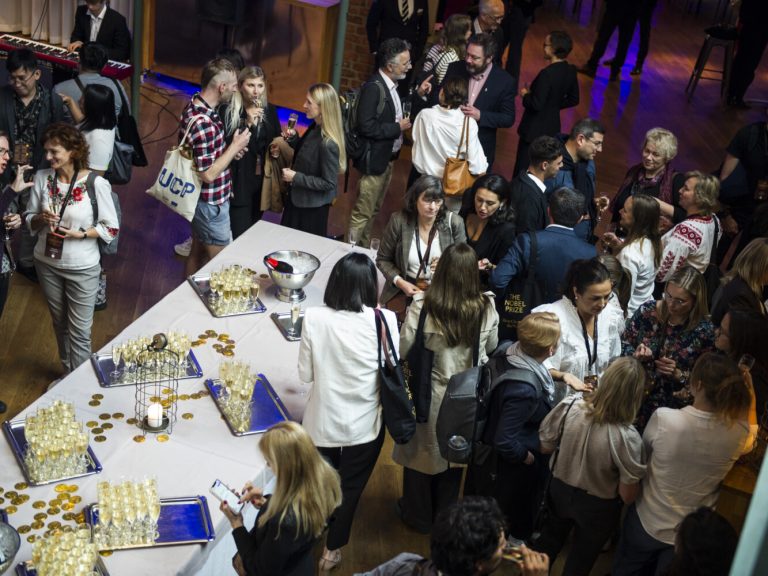The doors open at 8:30 with registration and coffee with a small sandwich. At 9:00 sharp the programme starts. It ends at around 16:30 with a chance to mingle, with bubbly and music. We will sit at round tables and discuss with teacher colleagues from all parts of the world to exchange experiences and thoughts. The day will be a mix between short lectures, interviews, breakout sessions and discussions with the colleagues at your table. In the Q&A sessions, you’ll be able to ask questions of the speakers on stage.
Do you already have questions for our speakers? You are welcome to post them here!
Programme
8:30–9:00 Registration, coffee and a small sandwich
9:00–10:15 Introduction by the Nobel Prize Museum team
9:15–10:20
Emotional Learning
Interview with Armita Golkar, Associate Professor in psychology at Stockholm University
A Look Inside the Brain of Teenagers
Lecture by Sara Bengtsson, Associate Professor in Psychology at University of East Anglia
A Generous Mind
Interview with Nobel Prize laureate David MacMillan
10:20–10:45 Swedish Fika
10:45–11:30
Why Learning and Instruction Should Be Based on Science, Not on Research
Lecture by Agneta Gulz, Professor of Cognitive Science at Lund.
Specialising and the Art of Blending
Interview with Lars Strannegård, President of Stockholm School of Economics.
Introduction to breakout sessions
11:40–12:20 Breakout session 1 – Choose one!
The Catalysts of Discovery David MacMillan
Implicit Biases Sara Bengtsson
Uncovering the Science of the Classroom: What Works and Why? Björn Sjödén
Understanding the Adolescent Brain: Navigating Growth, Challenges and Opportunities Armita Golkar
12:20–13:10 Lunch
13:10–14:05
Artificial Curiosity?
Interview with Amy Loutfi, Professor of Computer Science towards AI and Robotics.
Round table discussion
Learning and Well-Being
Lecture by John H. Falk, Founder and CEO of the Institute for Learning Innovation
Introduction to breakout sessions
14:15–14:55 Breakout session 2 – Choose one!
The Art of Memory and its Application in Schools Martin Nilsson
Embodied AI Amy Loutfi
A Well-Being-Centered Approach to Education John Falk
Teacher-Student Relationships and Learning: Focus on Neurodevelopmental Disorders Linda Plantin Ewe
14:55–15:20 Swedish Fika
15:20–16:30
How Can We Be So Smart, and Still Act So Stupid?
Interview with Björn Hedensjö, Psychologist, Author, and Podcast host
Round table discussion
Understand the Past and Foresee the Future
Interview with Dr Elena Zhemkova, Co-founder of Memorial – receiver of Nobel Peace Prize, 2022
Harnessing the Power of Memories for Tomorrow.
16:30–17.00 Bubbles and Jazz
